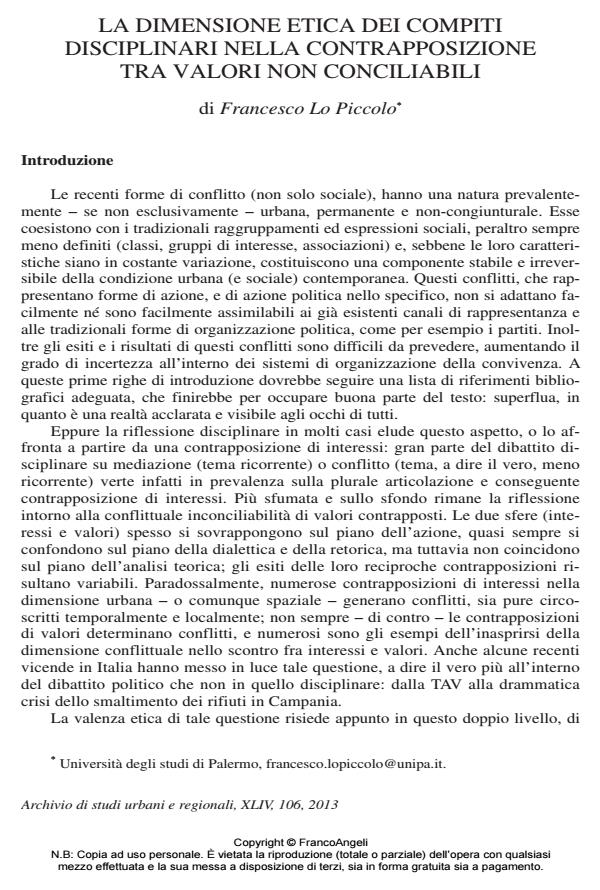La dimensione etica dei compiti disciplinari nella contrapposizione tra valori non conciliabili
Journal title ARCHIVIO DI STUDI URBANI E REGIONALI
Author/s Francesco Lo Piccolo
Publishing Year 2013 Issue 2013/106
Language Italian Pages 7 P. 159-165 File size 89 KB
DOI 10.3280/ASUR2013-106015
DOI is like a bar code for intellectual property: to have more infomation
click here
Below, you can see the article first page
If you want to buy this article in PDF format, you can do it, following the instructions to buy download credits

FrancoAngeli is member of Publishers International Linking Association, Inc (PILA), a not-for-profit association which run the CrossRef service enabling links to and from online scholarly content.
- La violenza dello spazio allo zen di Palermo. un'analisi critica sull'urbanistica come strumento di giustizia Giuseppe Lo Bocchiaro, Simone Tulumello, in ARCHIVIO DI STUDI URBANI E REGIONALI 110/2015 pp.73
DOI: 10.3280/ASUR2014-110006 - Fear, Space and Urban Planning Simone Tulumello, pp.115 (ISBN:978-3-319-43936-5)
- Fear, Space and Urban Planning Simone Tulumello, pp.1 (ISBN:978-3-319-43936-5)
Francesco Lo Piccolo, La dimensione etica dei compiti disciplinari nella contrapposizione tra valori non conciliabili in "ARCHIVIO DI STUDI URBANI E REGIONALI" 106/2013, pp 159-165, DOI: 10.3280/ASUR2013-106015